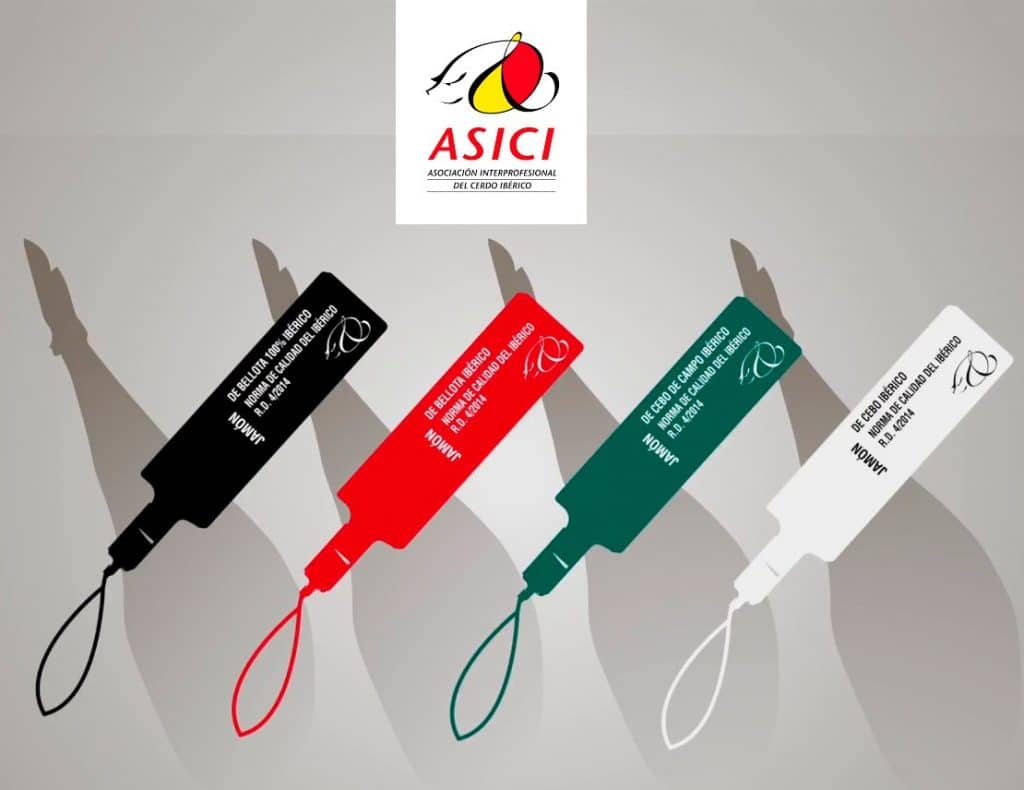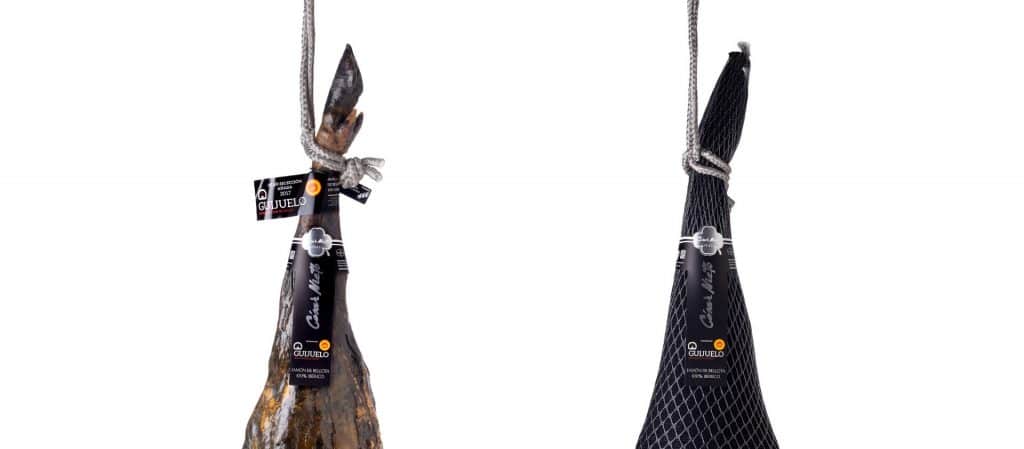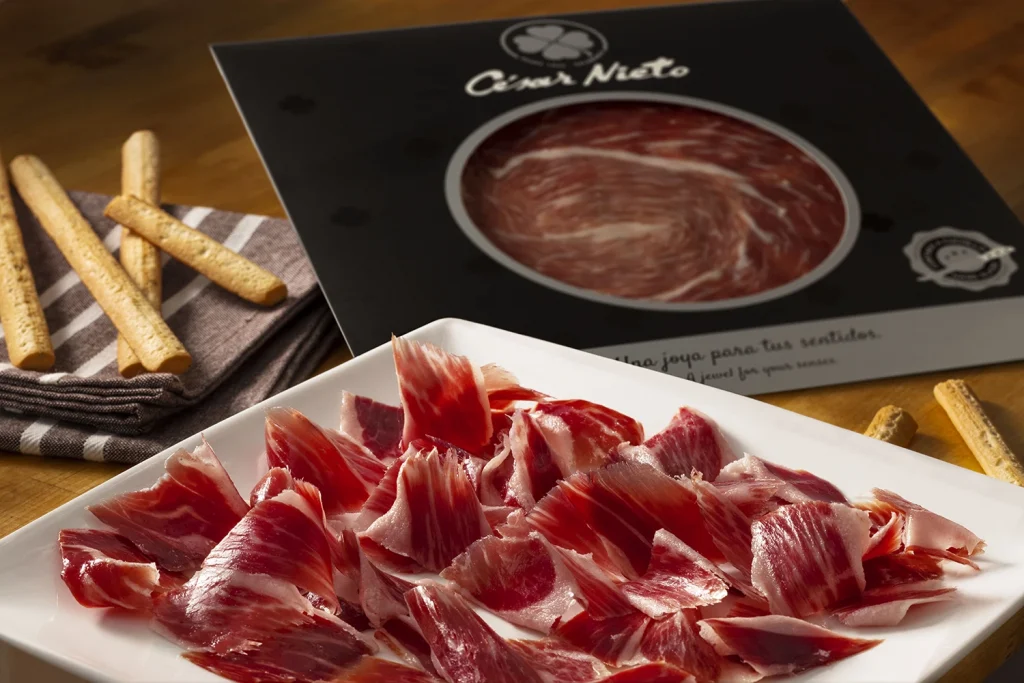Acorns are a very important food in the diet of the Iberian pig. The acorn is a fruit of the cork oak and the holm oak and is rich in nutrients such as proteins, fats and fiber. In addition, acorns have a high content of polyunsaturated fatty acids, which are beneficial to health.
The Iberian pig feeds mainly on acorns during the autumn and winter, when the leaves of the cork oak or holm oak have fallen and the acorns are ripe and within reach. This allows it to accumulate fat in its body naturally, which is reflected in the quality of the meat and the flavor of the Iberian ham.
In addition, acorns also have an impact on the environment of the dehesas. The dehesas are a unique ecosystem found mainly in the region of the Iberian plateau and are made up of holm oak and cork oak trees. The acorn is an essential food for the conservation of these ecosystems, as it attracts a great variety of animals that feed on it and contribute to its dispersion.
In summary, acorns are a fundamental food in the diet of the Iberian pig and have a positive impact on both the quality of the meat and the environment of the dehesas.
In Spain there are several types of pork, each with its own characteristics and used mainly for the production of different meat products. The most common types of pigs in Spain are:
In summary, in Spain there is a great variety of pig breeds, each with its own characteristics and used mainly for the production of different meat products.
The montanera is the feeding period of the Iberian pig during which it feeds exclusively on acorns, which is a fruit of the cork oak or holm oak. The “montanera” begins when the leaves of the cork oak or holm oak have fallen and the acorns are ripe and within reach and usually lasts until the end of winter.
During the montanera, the Iberian pig feeds exclusively on acorns and is allowed to move freely in the fields, which allows it to accumulate fat in a natural way. This fat is evenly distributed throughout the body of the pig and gives the meat a unique flavor and aroma.
The “montanera” is a very important period in the production of Iberian ham, since feeding on acorns is one of the factors that determines the quality and flavor of the ham. For this reason, the “montanera” is a key element in the production of high quality Iberian ham.

Iberian ham seals are the seals that guarantee the quality and origin of the ham. The different seals on Iberian ham are:
In short, Iberian ham seals are seals that guarantee the quality and origin of the ham and are based on the pig’s diet and breeding.

When buying an Iberian ham, an excellent way to choose a good one without fear of making a mistake is to opt for one with a Denomination of Origin (D.O.). César Nieto Iberian hams are included in the Guijuelo Denomination of Origin, and although it is well known that this certification is a guarantee of product quality, few really know what we are talking about when we refer to this certification. Here we tell you all about it!
An Appellation of Origin is a classification used to legally protect certain agricultural products and foodstuffs linked to a specific geographical area and to the traditional methods used in their production. This certification assures us that the products have specific quality standards and characteristics and is granted by organizations and entities in charge of certifying these conditions and setting the standards according to the type of product.
In the case of Iberian ham, current legislation establishes that there are four Denominations of Origin for Iberian pork in Spain, the oldest of which is that of Guijuelo, created in 1986 under the impetus of César Nieto and other businessmen in the area.
This D.O. is associated with the municipality of Guijuelo, in the province of Salamanca and is linked to this geographical area in two ways. On the one hand, through the breeding of Iberian animals in the delimited regions that make up the production area and, on the other hand, through the production of hams and shoulders in a specific processing area.
Thus, the pig production area of the Guijuelo D.O. includes several regions rich in oak and cork oak pastures located in Castilla y León, Extremadura, Andalusia and Castilla-La Mancha.
The production area is much more restricted, as it is related to tradition and particular climatic conditions (low rainfall, mild ambient temperatures, high wind regime due to the peneplain between two mountain systems, etc.) that have led to the existence of a highly specialized pork industry specialized in Iberian pork products. The area where the hams are slaughtered, cured and matured is located in the southeast of the province of Salamanca, at an altitude of over 1,000 meters above sea level. Sheltered by the Central System, the privileged microclimate of the region, with its cold and dry winters and mild and short summers, allows for perfect drying and maturation of the hams. Along with Guijuelo, the production area is completed by the municipalities of Ledrada, Campillo de Salvatierra, Béjar, Aldeavieja de Tormes, Frades de la Sierra, Miranda del Castañar, Palomares de Béjar, Puerto de Béjar, and Tamames.
GUIJUELO IBERIAN HAM, A GUARANTEE OF QUALITY
When launching an Appellation of Origin, a series of product conditions must be specified, such as the name, the description of its fundamental characteristics and the delimitation of the geographical area. In addition, it must be demonstrated that the Iberian ham has specific quality standards, and in this regard, the Guijuelo D.O. is the only appellation that analyzes the pieces using the stable isotope technique at the beginning of the curing process. The result of this analysis makes it possible to qualify or disqualify the products.
In general, the hams and shoulders protected by the D.O. Guijuelo are elongated and stylized, are shaped and keep the hoof. The minimum weight is 4.5 kg for hams and 3.5 kg for shoulders. Its consistency is firm in the muscular masses and slightly unctuous and depressible in the adipose tissue areas. Externally, the mycotic flora is white, bluish-gray, dark or violet in color. When cut, it appears pink to purplish red in color, with a shiny appearance and streaks of adipose tissue and fat infiltrating the muscle mass. The meat has a delicate, sweet or slightly salty flavor, low fibrous consistency and high friability. The aroma is pleasant and characteristic. The fat is unctuous, depending on the percentage of acorn feeding, with a bright yellowish-white color, aromatic and pleasant flavor, not rancid.
Hams with D.O. Guijuelo have a certification seal, through which we can identify the category of the ham or shoulder. In addition, they carry the brand’s label with the corresponding information (ingredients, the brand name of the dryer or winery and the type of ham, both feed and breed). The vitolas of the Guijuelo D.O. bear the yellow and red seal that identifies the ham and also incorporate the colors of the standard.
The Guijuelo Denomination of Origin certification is a guarantee of quality that ensures that the products have a certain composition and that they have been cured and processed with very specific characteristics. Therefore, when choosing a Bellota product, do not gamble and choose those with this certification, such as our César Nieto Bellota products. You can find our D.O. Guijuelo certified hams and shoulders in our online store.

Within the Iberian hams there are differences, in this case classified on the basis of the percentage of Iberian breed and the type of feed of the pig.
Iberian ham according to percentage of Iberian breed
This type of classification is governed by the genetics of the animal’s breed:
100% Iberian: Based on the genealogical book of the breed, both the father and the mother are 100% certified Iberian breed.
75% Iberian: In order to have this label, the mother will be 100% certified Iberian breed but the father will be 50% Iberian.
50% Iberian: In this case, the mother will be 100% certified Iberian, but the father will be 100% Duroc.
Iberian ham according to its diet
In this case, the classification becomes more relevant, since the diet and the way in which the Iberian pig has been fed directly determines its flavor, aroma and texture.
In this way, the regulations regulate the following groups:
Acorn: Iberian pigs feed exclusively on grass and acorns, in total freedom in the pasture for at least 2 months (montanera). It must be cured for a minimum of 24 months. At César Nieto, our 100% Iberian acorn-fed acorn-fed ham is cured for 36 months.
Cebo en campo ibérico: In this case, although they do enjoy some time in the pasture, they are also fed with cereal feed. In our online store you can find this type of hams with a curing period of more than 30 months.
Cebo: Cebo Iberian ham has been fed with cereal feed and raised in a shed. Being the most inferior within these three classifications, but without renouncing to an exceptional quality.